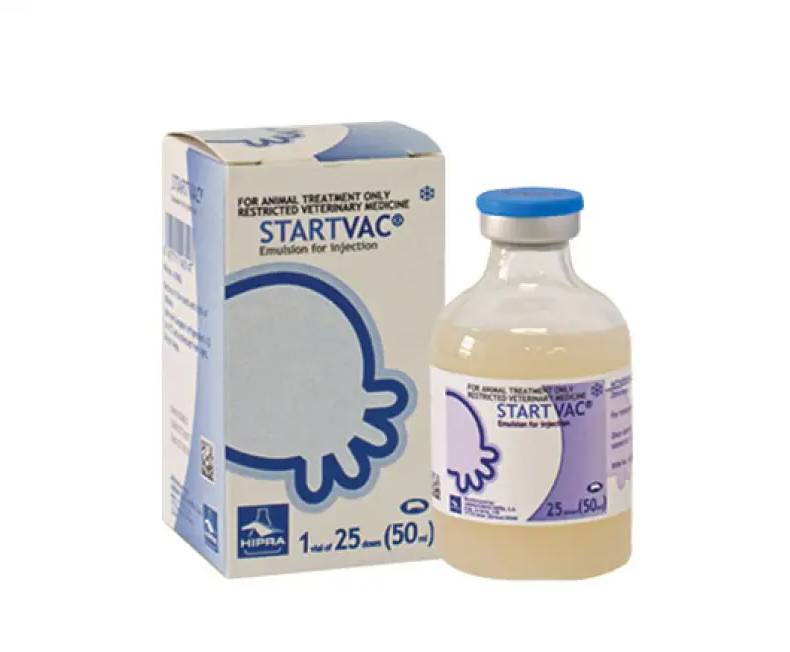
Packaging
50 mL vial (25 doses)
Startvac is New Zealand’s first inactivated mastitis vaccine, designed for herd immunisation of cows and heifers in dairy herds with recurring mastitis problems. By protecting cattle from Staphylococcus aureus, E. coli, and coagulase-negative staphylococci, it reduces both the incidence and severity of subclinical and clinical mastitis, helping improve udder health, milk quality, and herd productivity.
Each dose contains:
E. coli J5 (inactivated)
Staphylococcus aureus CP8 strain SP 140 (inactivated)
Liquid paraffin & benzyl alcohol as adjuvants.
Diagnostic kits available: HIPRA has developed the Startcheck test, based on PCR real-time bulk testing, to help investigate the current situation of the most common mastitis-causing pathogens on-farm.
Intramuscular injection – preferably on alternating sides of the neck.
Recommended Vaccination Programme:
1st injection: 45 days before expected calving date.
2nd injection: 10 days before expected calving date.
3rd injection: 52 days after calving (62 days after the second injection).
Repeat the full immunisation programme with each gestation for continued protection.
Important note: Store refrigerated (2°C-8°C) and protect from light. Do not freeze. Shake well before administration. Allow vaccine to reach 15-25°C before use. Once opened, use within 10 hours. Keep out of reach of children.
HIPRA is a global leader in preventive animal health, offering innovative vaccines and diagnostics, with over 50 years of experience and a presence in 100+ countries. Visit hipra.com to learn more.
The vaccine contains inactivated strains of Escherichia coli (J5) and Staphylococcus aureus (CP8) expressing the slime-associated antigenic complex (SAAC). These components stimulate the cow's immune system to produce antibodies, enhancing the animal's ability to fight off infections caused by these pathogens.
Yes. Startvac® can be administered at any stage of gestation and lactation, making it a safe and flexible option within your herd health protocols.
Yes. Multiple field trials and studies have demonstrated the vaccine’s efficacy in reducing the severity and incidence of clinical and subclinical mastitis. It has been widely adopted in numerous countries and included in long-term herd health programmes.